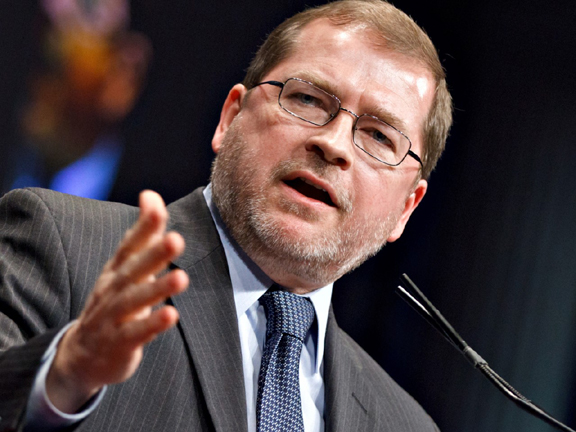For three days last month, I attended a Coalition Leaders’ Summit at
the Broadmoor Hotel in Colorado Springs. I went to this conference
as a guest of Grover Norquist’s organization,
Americans for Tax
Reform, based in Washington, DC. ATR covers travel and hotel
expenses for its conferences held every couple of years in cities
around the country for a number of conservative activists — I was
one of the lucky ones.
This particular conference was not held as usual, in conjunction
with an American Legislative Exchange Council (ALEC) conference, but
rather convened specifically for the leaders of Center-Right
meetings throughout the United States. They are patterned after the
Wednesday Morning Meetings held by Grover in Washington, DC.
There are about 60 such regional meetings convening in almost all 50
states. Believe it or not, in one of the bluest of states, the Bay
State has one of the most successful: The Massachusetts meeting,
which I host, is called the
Friday Morning Group (FMG). It has the fifth- or sixth-highest
attendance in the nation and has been meeting every month since
December of 2001.
Two topics at the conference focused on Over-criminalization and
Civil Asset Forfeiture.
|
 |
|
Grover
Norquist |
In the case of Over-criminalization a Criminal Justice Panel session
cited cases where the punishment did not fit the crime, just
overkill on the part of law enforcement. Minimum mandatory
sentencing came under attack. Oklahoma passed a bill in May called
the Safety Valve Act allowing judges the discretion to give
low-level offenders less severe sentences. ATR has cited the
“growing chorus of Red states reforming their prison systems.”
Texas passed prison reforms in 2007, which led to prison population
decline, a lower crime rate and savings of $2 billion. As one
panelist pointed out, the problem is with politicians who seize upon
an outbreak of crime, e.g., carjacking. They then demand and get
adopted mandatory minimum sentences for that particular crime. The
minimum may be a far more severe than the punishment for more
serious offenses. Grover (photo right) pointed out that Red states have far more
credibility carrying out prison reform than a liberal state like
Vermont, which most observers would consider “soft on crime.”
Civil Asset Forfeiture came under attack at this conference. This
process allows law enforcement to seize and forfeit someone’s
property even if they have not been charged — much less convicted —
of a crime. Numerous examples were cited of people paying thousands
of dollars and waiting months to get their cars back after police
seized the vehicle upon suspicion of a crime. As the Mackinac
Center for Public Policy pointed out, “… the state should disallow
law enforcement from taking money and property from citizens who are
not first convicted of a crime.”
Highlighting the conference were the meetings that took place
among the twenty-five or so Center-Right leaders from states around
the country. During over five hours in two separate sessions, each
leader gave an accounting of their respective meetings, hot issues,
scandals, political machinations, etc. particular to the state and
their prospects of political gain in the 2016 election. Surprisingly
little was said about the presidential candidates. Maybe everyone at
this point had heard everything they wanted to hear from the
political pundits. It was frustrating to hear many of them talking
about how just a few elections in their state would change party
control in the legislature. For example the Colorado House contains
34 Democrats and 31 Republicans — only two switches needed — and
Kentucky’s House with 54 Ds and 46 Rs — a switch of just 5!
I pointed out during my presentation that Massachusetts had the
longest streak — among the 50 states — of Republican governors in
the years 1991 to 2006, a statistic that astonished many at the
conference. Also mentioned was the fact that my state had rejected
the graduated income tax five times at the ballot box. I had to
admit, however, that the grad tax somehow has a life of its own,
because petition signatures were being collected, as we speak, for
its re-appearance on the 2018 ballot. CLT is gearing-up now for a
three-year fight. The liberals and big-spenders seem determined to
keep Citizens for Limited Taxation busy as the counter-balance — the
crucial taxpayers’ advocate.